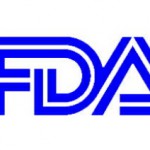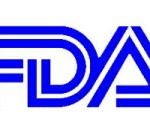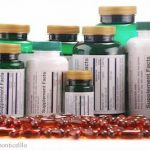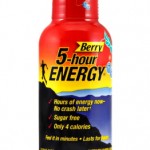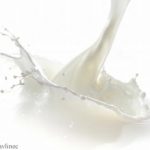The FDA's Michael Taylor has released an article in FDA Voice discussing the limits officials are considering putting on caffeine in consumer products. While many products contain caffeine, some naturally and some added, some products, particularly energy drinks, have come under fire in recent years for having too much of the stimulant. Companies are adding caffeine to everything from gum to waffles, which can all add up to an alarmingly high daily total. It is very easy to consume more caffeine than is safe in today's marketplace. Monster Energy Drink was sued last year for allegedly causing a child's death. Earlier this year, Center for Science in the Public Interest warned consumers about web ads for Five Hour Energy, which is being investigating for allegedly being involved in the … [Read more...]
FDA Applauds Wrigley For Pulling Caffeinated Gum From Market
A little more than a week after introducing its latest chewing gum product, the William Wrigley Jr Co. has temporarily removed Alert Energy Caffeine Gum from the market while the U.S. Food and Drug Administration (FDA) rethinks its stance on caffeine as a food additive. The gum, which was rolled out in late April, was latest caffeine-added entry to the market which already includes other gums, jelly beans, trail mix and water. One piece of Alert Energy, which was sold in eight-piece bubble packs, had about as much caffeine as a half a cup of coffee, according to company. When sales of the gum began, the FDA’s Michael Taylor, deputy commissioner for foods and veterinary medicine, released a statement saying: “The only time that FDA explicitly approved the added use of caffeine in a food … [Read more...]
New Gum Prompts FDA to Rethink Caffeine Food Safety Rules
The rollout of Alert Energy Caffeine Gum by the William Wrigley Jr Co. this week has prompted the U.S. Food and Drug Administration (FDA) to rethink the impact that caffeine as a food additive could have on children and teens. One piece of the gum, which is sold in eight-piece bubble packs, has about as much caffeine as a half a cup of coffee, according to information on the product’s webpage. The product is the latest in a string of foods to which caffeine has been added including jelly beans, trail mix and other gums. Now that coffees and soft drinks aren’t the only source of caffeine on the market, the agency is revisiting caffeine’s health impact. "The only time that FDA explicitly approved the added use of caffeine in a food was for cola and that was in the 1950s. Today, the … [Read more...]
Most Caffeinated Dietary Supplements are Inaccurately Labeled
A study just published in the online version of JAMA Internal Medicine has found that more than half of all caffeinated dietary supplements carry inaccurate labels. Those products, such as Monster Energy Drink and 5-hour Energy, are being investigated by the FDA because they have been associated with illnesses and death. In fact, Monster Beverages was sued in October 2012 after a 14-year-old died after drinking the product. In 2011, the Substance Abuse and Mental Health Services Administration reported that energy drinks pose potentially serious health risks, leading to a sharp increase in emergency room visits between 2005 and 2009. There have been 13 adverse event reports to the FDA about 5-hour Energy. The laws regulating labeling of supplements are quite lax, allowing … [Read more...]
Web Ad for 5-hour Energy Pulled
The web ad for 5-hour Energy drink has, at least for now, stopped running a web ad criticized by the Center for Science in the Public Interest (CSPI). Last week Food Poisoning Bulletin told you about the ad, which showed CSPI Executive Director Michael F. Jacobson saying it's difficult to die from caffeine because "Someone would really have to make an effort to consume 40 or so 200-mg caffeine tablets." CSPI says the use of that quote is deceptive, giving the false impression that Jacobson or CSPI endorsed the product. In addition, high caffeine levels in 5-hour Energy and other caffeinated drinks can cause many other health issues, including anxiety and insomnia. The product has been associated with convulsions and heart attacks. In fact, 5-hour Energy is under investigation by the FDA … [Read more...]
CSPI Warns Consumers About 5-Hour Energy Web Ads
The Center for Science in the Public Interest is warning consumers not to believe a new web ad for 5-hour Energy. The controversial drink is being investigated for its alleged role in 13 deaths. There have been reports from 92 people who became ill after using the product. The product is sold as a "nutritional supplement", so limits on caffeine that apply to soft drinks and other beverages do not apply to these beverages. Last year, trend data released by the Drug Abuse Warning Network showed a sharp increase in the number of emergency room visits involving energy drinks. In 2005, there were 1,128 visits, and in 2009 there were 13,114 visits, representing a tenfold increase. About half of the visits were made by 18 to 25-year-old patients who combined the drinks with alcohol or other … [Read more...]
Monster Energy Drink Maker Sued Over Child’s Death
Monster Beverages is being sued by the family of a 14-year-old girl from Maryland who died in December 11, 2011. She developed a heart arrhythmia after drinking cans of Monster Energy drink that is very high in caffeine. The lawsuit alleges that Monster did not warn about the health risks of its drinks. The drinks, and their caffeine content, are not regulated by the FDA since they are considered a "dietary supplement" and are not required to establish safety of their products or adhere to caffeine limits. Caffeine levels in soft drinks are limited to 0.02% or less of the product, which is about 71 mg in a 12 ounce soda. Teenagers should limit caffeine consumption to no more than 100 mg daily, according to pediatricians. FDA spokesperson Shelly Burgess said the government has, in the … [Read more...]
Would You Like Your Caffeinated Ocean Water with Milk or Cream?
A new study published in the July 2012 Marine Pollution Bulletin has found elevated levels of caffeine in the Pacific ocean waters off the coast of Oregon. Scientists from Portland State University and Washington State University in Vancouver included caffeine, a biologically active drug, in their survey of pollutants. Caffeine is a contaminant of freshwater and marine ecosystems. The amount of caffeine in seawater ranged from below the reporting limit of 8.5 ng/L to 44.7 ng/L. (ng/L is nanograms per liter.) Concentrations of caffeine in rivers and estuaries draining into the ocean were as high as 152.2 ng/L. The concentrations and occurrence didn't correlate with location near cities, but did correlate with storms. In other words, storms that trigger sewer overflows increase the … [Read more...]
